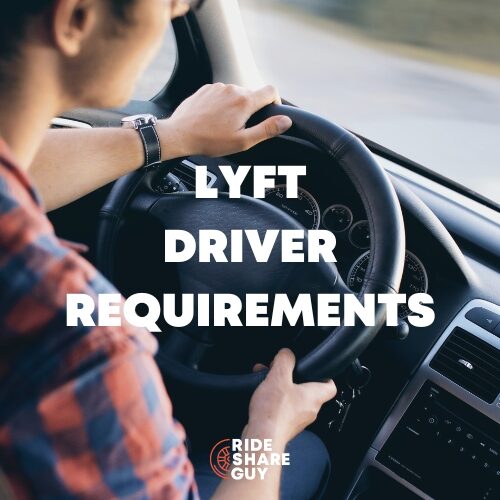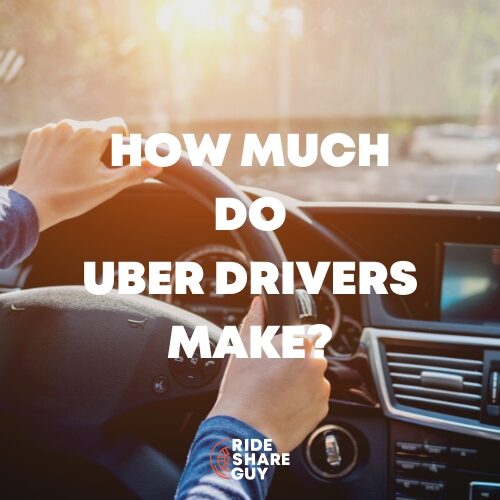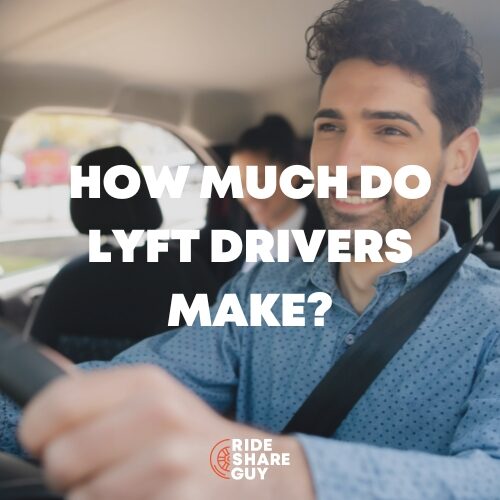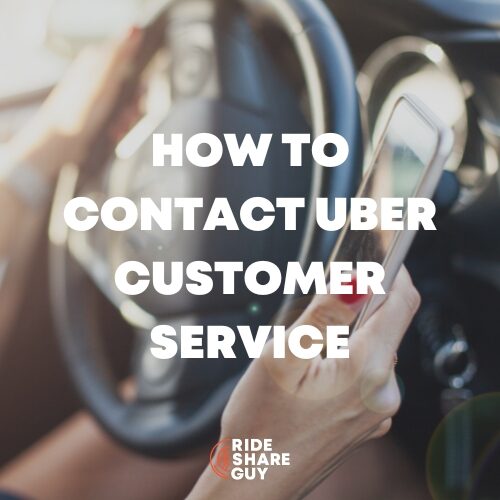In case you’re unaware, there is a massive legal battle going on right now between Uber and three of its drivers in California. On the surface, that might not seem like a big deal but these three drivers could ultimately change the way Uber’s entire business model operates if they are successful with this lawsuit.
At stake, is the vaunted ‘independent contractor’ classification that Uber and most other on demand companies apply to their workforce. It’s estimated that companies like Uber save up to 30 percent of payroll tax costs by classifying workers as independent contractors instead of employees. And when you have a few hundred thousand employees, that’s a whole lot of cash at stake.
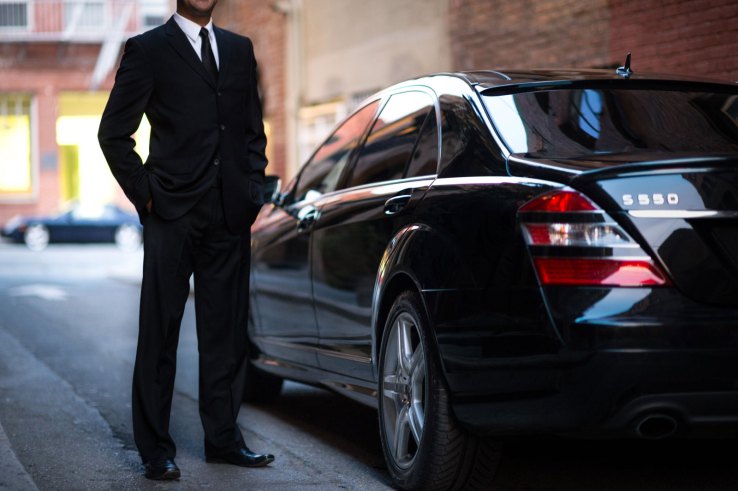
This is obviously a hot topic right now because the impact of this one case could have a long-lasting effect on the entire on demand economy. Shannon Liss-Riordan, the lawyer representing the three drivers in CA is also bringing similar cases against Lyft, Homejoy (now bankrupt), Postmates and Caviar.
If you’d like to catch up on what I’ve written on this topic in the past, here are a few good articles:
- Forbes: Do Uber Drivers Even Want To Be Employees?
- Forbes: Could Dependent Contractors Be The Answer For Uber?
- RSG: What Drivers Need To Know About The Uber Employee Lawsuit And Recent Rulings
Thursday’s Class Action Hearing
Last Thursday, in San Francisco, Judge Edward Chen heard arguments in regards to whether these three Uber drivers would be allowed to represent the 160,000 Uber drivers in California in a class-action lawsuit. It’s important to note that this case will only apply to California Uber drivers but it will obviously have a huge impact on future cases in other states.
I won’t get into the minutia of the hearing but suffice it to say that the verdict for class action status is still up in the air. Ultimately, whatever Judge Chen rules will likely be appealed anyways so this will be a very long and drawn out process.
Judge Chen: “I intend to go forward on this and rule and throw the dice. The chances are a higher court will have a look at whatever I do.”
— Susie Cagle (@susie_c) August 7, 2015
I didn’t attend this hearing but I’ll likely go up to San Francisco when the actual trial starts (next year). I did however follow the live tweeting of some reporters that cover the industry. I definitely suggest you guys follow them so you can check out their rideshare coverage. And I also linked to the articles they wrote about the trial, if you want a more thorough recap.
- Ellen Huet at Forbes
- Susie Cagle at Pacific Standard
- Carolyn Said at SF Chronicle – Judge weighs if Uber case is a class-action
- Davey Alba at WIRED – Uber’s Desperate Fight To Avoid A Massive Class Action Suit
- Annie Gaus at SF Business Times – Lawyers in Uber case battle over class-action status
Even though I wasn’t there, my impression is that the judge in this case is not a huge fan of Uber, or their business model. His job is obviously to remain an impartial mediator but throughout the hearing he appeared to take subtle jabs at Uber and especially their contention that they are simply a technology company that connects drivers with passengers.
Drivers have known this argument is bullshit for a long time and here’s Judge Chen delivering a couple zingers from the bench:
Judge Chen, smirking: “If you were confident in your case, it would be a good gamble.” — Susie Cagle (@susie_c) August 6, 2015
Judge Chen: “Is Uber truly going to say it did not have the authority & the right to control someone” w/ a low star rating? Uber atty: “Uh” — Susie Cagle (@susie_c) August 6, 2015
SLR Knows Her Stuff
One person who’s really impressed me so far is Shannon Liss-Riordan, the lawyer representing the three drivers. I have a pretty strong bias against lawyers in general, but she is one of the more passionate and knowledgeable ones. Riordan has really proven herself so far, and if you listen to some of her arguments, you can tell that she fully understands what it’s like to be a driver.
As I was reading the tweets, a lot of the comments/retorts I was thinking about in my head, Riordan brought up on her own. I often read media articles from reporters and communications from Uber that show a clear lack of knowledge when it comes to what it’s actually like for drivers out on the road.
I’m not saying being an Uber driver is rocket science, but there are lots of things that you would only know about if you’re a driver yourself. And somehow, Riordan seems to pick up on a lot of that.
Not Impressed With Uber’s Lawyer
Uber’s lead counsel, Ted Boutrous, has experience arguing before the Supreme Court, having defended (and won) a similar case for Walmart years ago. But I just don’t think he’s doing a very good job right now. His arguments seem weak and flimsy to me and it looks like Uber is basing their whole case on what drivers want instead of legal precedence.
I’ll get into what drivers want and what outcome could be best for drivers below but I can assure you that what drivers want should have no effect on the outcome of this case. Uber submitted as evidence, 400 cherry-picked driver statements that said drivers prefer being IC’s to employees. But the judge quickly laid the smack down on Uber pointing out that 400/160,000 is only .25% of all Uber drivers and it wasn’t even a random sampling.
Riordan on the other hand, jumped on this opportunity during the hearing and said her paralegal called 50 of those drivers and many of them actually didn’t understand what they were submitting on Uber’s behalf once it was explained to them.
When Will We Know The Ruling?
We won’t know Judge Chen’s ruling for a few weeks but if I had to guess, I would say he’s leaning towards some type of class or multiple class certification (ie. fleet owners, part-time UberX drivers, full-time UberX drivers, etc). This is where things get a little fuzzy for me on the law side of things but I suspect that a class certification just means that potential damages could be higher.
Like a normal class action, drivers will have the opportunity to opt out if they choose and/or pursue legal recourse on their own. I suspect that class-action status is a good thing for drivers since it means more is at stake for Uber and they are going to take this issue even more seriously.
The actual trial is still a ways off and likely won’t happen until next year (2016).
What This Means For Drivers
If you’re a current Uber driver, you’re going to be hearing a lot about this case, but the final outcome may be years away. From polls I’ve done in the past, and drivers I’ve talked to, it’s pretty clear that most drivers want to remain independent contractors as opposed to becoming employees. And I completely understand why.
When the word ’employee’ comes into our head, it probably brings back terrible memories of sitting in a cubicle, clocking in at 9 and leaving at 5, listening to some idiotic boss go on and on about trivial stuff, etc.
Most people who drive for Uber really do value the flexible schedule that driving affords and the ability to be their own boss. There is no doubting that.
Uber’s Attack on Flexibility
But Uber has really pounced on that uncertainty of what would happen if we became employees and I think they are using that to unfairly scare drivers into supporting them. Uber’s whole argument up until this point has rested on drivers losing flexibility with employee designation.
- During the hearing, they presented 400 testimonials from drivers who said they value the flexibility of driving for Uber and don’t want to lose that if they became employees.
- David Plouffe went on NPR and talked for 20 minutes about the flexibility that drivers have.
If Uber wasn’t so adamant about jamming this flexibility argument down our throats I may not have noticed it, but after hearing about how drivers love the flexibility for the 1,800th time, I started thinking to myself: ‘Why would the flexibility disappear if Uber drivers became employees?’
(h/t to the people who pointed it out to me too (here and here).)
It’s true that traditional employee roles have offered very little in the way of flexibility but there’s nothing set in stone that says employees have to come in at 9 am and leave at 5 pm. It’s more tradition than anything else.
I know a lot of drivers are worried that if we were to all become employees then we’d have to clock in and clock out like a regular day job or schedule our hours in advance. And you’re right, that schedule would suck for a lot of drivers but the thing is, that schedule wouldn’t work well for Uber either.
Uber’s busiest times (rush hour commutes and weekends) don’t line up well with a 9-5 type job. That’s why they use tactics like guaranteed pay and surge pricing to get drivers out on the road when demand is at its highest. As it stands now, drivers are free to log in and out whenever and wherever they want. If drivers were all employees, there is nothing that says drivers wouldn’t keep that same flexibility.
Uber Can Make It Work
Let’s not forget that Uber is a $50 billion dollar company and one of the ways they got to this point is leveraging independent contractors. This business model has worked well for drivers but it’s worked way better for Uber.
And who’s to say that Uber couldn’t hire a mix of independent contractors and employees? I think if Uber had employees to handle the baseline demand and contractors to handle overflow, that would be a system that could work out very well.
In fact, many traditional businesses already do this. They hire W2 employees and whenever they have big projects or temporary work, they hire contractors, pay them a premium and they get the job done. Uber would be able to offer the exact same thing during times of high demand when they need more drivers.
Right now, Uber is using a smart PR strategy to try and make it seem like there are only two options: independent contractor – good OR employee – BAD. But the reality is that even if Uber lost this case, they are a very smart and creative company, and it by no means will be a crippling death blow to their business model.
Drivers Deserve Worker Protections
What it really boils down to in my mind are the worker protections. There’s a reason why people have fought so hard for and voted for things like unemployment, disability insurance and social security. Without those protections, workers can get screwed very easily.
I think a lot of people are thinking about this issue without taking into consideration the longer term effects. Right now, I usually tell people that being an Uber driver works best on top of another more stable, job with benefits.
Part-time drivers like myself like to complain about the high cost of gas and depreciation on our vehicles but there are full-time drivers who need to buy health insurance, save for retirement, build up an emergency fund in case they get sick or their car breaks down and more. It’s very tough to do all that right now as a full-time Uber driver.
Those drivers would obviously benefit a lot from becoming employees but the reason why it’s so important for the rest of us is simple: we are seeing a monumental shift in our labor workforce towards 1099 style of employment. Driving for Uber is great if you have another more stable job but what happens when that stable job decides to start hiring solely 1099 workers?
We are moving towards an on demand style of employment, not away from it and if you think there’s an industry that’s safe from Uberization you need to think again. Big businesses are always looking for ways to cut costs and if Uber can do it, so can they.
A True Independent Contractor
Going forward, I think we’re going to see Uber more clearly delineate the line between independent contractor and employee. We’ve already seen them change position on things like rideshare advertising, tipping, and even the deactivation cut-off rating.
In 2014, their policy was that you could be deactivated for promoting other companies or showing ads to your riders. But with the impending lawsuit, they now tell drivers that it’s highly discouraged. See, they can’t tell you no anymore.
Here’s what I think a true independent contractor relationship should look like:
- Set My Own Rates: In my mind, this is at the top of the list in a true independent contractor relationship. Right now, a $4 minimum fare that nets a driver $2.40 is a money loser. There’s really no elegant way of saying it, but you are probably losing money on these rides. Unfortunately for drivers, there’s not a whole lot you can do about it. Drivers should be able to raise their minimum fare and raise the rates to whatever they think is acceptable if this is going to be a true IC relationship.
- No Deactivations: If Uber truly is just a technology company, they shouldn’t be allowed to ban certain partners from using the app. Lots of drivers feel that the rating system is unfair and works against them but if there was no threat of deactivation, riders would see their potential driver’s rating and then decide if they still wanted to ride with them or not. If a rider saw that their driver was only rated 4.0, it should be up to them whether they want to get in the car or not.
The Real Problem: Both Classifications Suck
If you asked me today what designation I prefer, I would say independent contractor. But there are a whole lot of caveats behind that. In reality, I don’t think either classification makes a lot of sense since they were invented at a time when lawmakers didn’t even know what the internet was.
But the reason why I think this lawsuit is a good thing is that it’s going to force Uber to do a few things:
- Clearly delineate the line between IC and employee: This court case is going to be years in the making and will likely be appealed all the way up to the Supreme Court, especially if Uber keeps losing. Uber could 100% make it work with an all employee workforce or a mix of employees and IC’s but plain and simple: that will cost them a lot of money. We’re already seeing some examples of this, but going forward, Uber will make it a priority that drivers are seen as independent contractors. I suspect whatever aspects of control the courts start to harp on, those are the exact things Uber is going to start changing. That way, if the courts look at the fact that drivers can be deactivated for any reason and say that is akin to an employer/employee relationship, Uber would likely use a strategy like the one I mentioned above that would put the choice in the rider’s hands. That way, they solve that problem and while they can’t do anything about past indiscretions, going forward, they stay within the realm of the independent contractor relationship.
- Offer employee positions to some drivers: There’s really nothing that says Uber can’t hire a mix of employees and IC’s. Many traditional businesses already do this and it would be very easy for Uber to baseline demand and allow employees to sign up for hours accordingly. Honestly, I think driving for Uber as an employee would kind of suck but at this point, it’s such a small minority of drivers, it might cost Uber a lot less to just let them be employees if they really want to. I don’t even want to think about how much it costs to have Ted Boutrous on retainer 🙂
- Force Uber to push for new legislation: Ultimately, what I want for drivers is to maintain the same level of flexibility but get more worker protections. I think it’s short-sighted of drivers to be content with the way things are now because I think they can be a lot better. Driving for Uber really does deserve a whole class of its own in order to ensure that workers are protected but they’re still afforded the flexibility that drivers and Uber both value. This would be a monumental task and there’s probably only one group or organization that could pull it off: Uber.
I’m sure there will be lots of different opinions on this article, but anyone who says this is a clear cut issue is not thinking about the bigger picture. There is a lot of room for compromise but drivers won’t always have the leverage that they do now. Sure, things are ok or even good for many drivers right now but if you look at the way things are trending, things are getting better for Uber and worse for drivers.
It’s important to step back at times and look at the bigger picture. You may be able to make more money, save more on taxes and run your own business today with a lot of success, but what’s going to happen in a year or even five years down the road? As we’ve seen, there are a lot of people that qualify to drive for Uber and are willing to drive at rock bottom prices.
I think a lot of drivers like being an independent contractor, but what they like even more is the flexibility. Whatever model Uber ends up deciding on, there is nothing that says drivers have to lose that flexibility. So the next time Uber threatens you with this, don’t be afraid to ask why. Uber is jamming this notion down everyone’s throats that drivers would lose the flexibility that they currently enjoy. But if you think about it, there’s no law, there’s no corporate decree, there’s nothing that says this has to happen.
Personally, I like being an independent contractor but I also know that this set-up probably isn’t going to work out real well over a long period of time. Now is the time to really push for more protections for drivers and let your voice be heard. Ultimately, Uber is going to do what’s best for Uber but whether you agree with lawsuits like this or not, it provides a real opportunity to make things better for drivers.
As you can see, it took over 3,000 words to get my points across so clearly it’s a very complex issue. But I would like to hear from all of you in the comments. I think the reasons for becoming an employee are pretty obvious but if you want to stay an IC, I want to know, what aspects of being an IC do you really value that would disappear with employee designation? Additionally, do you think the way things are now with IC’s and Uber will result in long term success for drivers? What if other industries start shifting towards 1099 style of employment if Uber wins this case?
-Harry @ RSG
